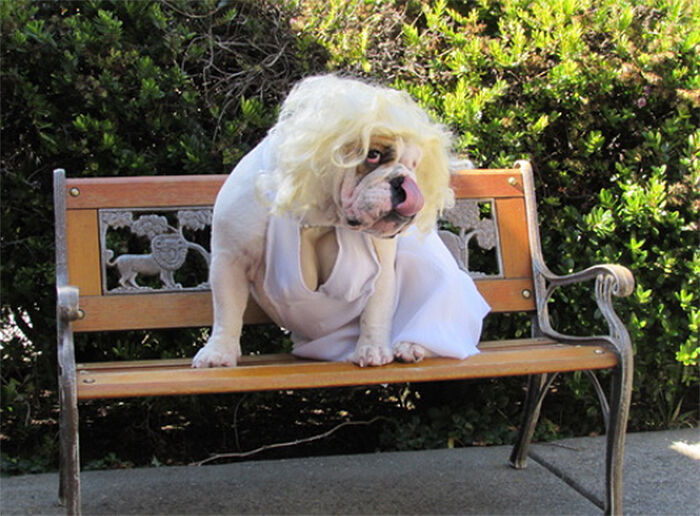My bitch’s slave – Are you in your pet’s power?

Japanese researchers have found that female dogs can recognise different types of humans and naturally seek out the more competent when they’re in trouble.
According to scientists at Kyoto University, dogs make their views known through facial expressions and body language.

Dog owners are said to let themselves go in front of their pets, according to the UK’s Mirror newspaper. The dog is not going to complain if you don’t shower for a week. If you didn’t wash your hands after visiting the bathroom, do you think the dog cares? Apparently, they do care, and while they might not have any voice to bitch about it, they show their disgust in plenty of other ways.
The Japanese experts believe dogs judge “incompetent” humans and naturally gravitate towards those who will serve them best – the most obedient humans. Shockingly, this only applies to female dogs, with most males none the wiser if their owner poops on the rug or chews the wallpaper.

An extract from the study reads:
“Dogs are highly sensitive to human behaviour, and they evaluate us using both their direct experiences and from a third-party perspective.
Dogs pay attention to our actions and make judgments about them, for example, social vs. selfish acts.”
In the study, dogs were shown a “competent” and “incompetent” person attempting to open a container. Two people were given a transparent container and were told to remove the lid – one was good at it while the other struggled and was unable to get it off. Following this, they were each given another container with food inside. Again, one person opened it without a problem while the other couldn’t.
The dogs looked at the “competent” person more than the “incompetent” one – with female dogs being more likely to approach the “competent” person. This suggests female dogs judge their owners and make conscious decisions about who will be most useful to them when they need help.

The study continued…
We showed dogs two experimenters manipulating a transparent container: one was good at removing the lid to take an object out of the container (competent person), whereas the other was unsuccessful at this task (incompetent person).
After demonstrating their actions twice with different containers, both experimenters simultaneously tried to open a third container which contained food (food condition; 30 dogs) or was empty (empty condition; 30 dogs).
Dogs in the food condition looked at the competent person longer than the incompetent one, and female dogs in particular were more likely to approach the competent person.
In contrast, dogs in the empty condition showed no preferences.
This result suggests that dogs can recognise different competence levels in humans and that this ability influences their behaviour according to the first situation.
Our data also indicate that more attention should be given to potential sex differences in dogs’ social evaluation abilities.
Latest Thailand News
Follow The Thaiger on Google News:


























